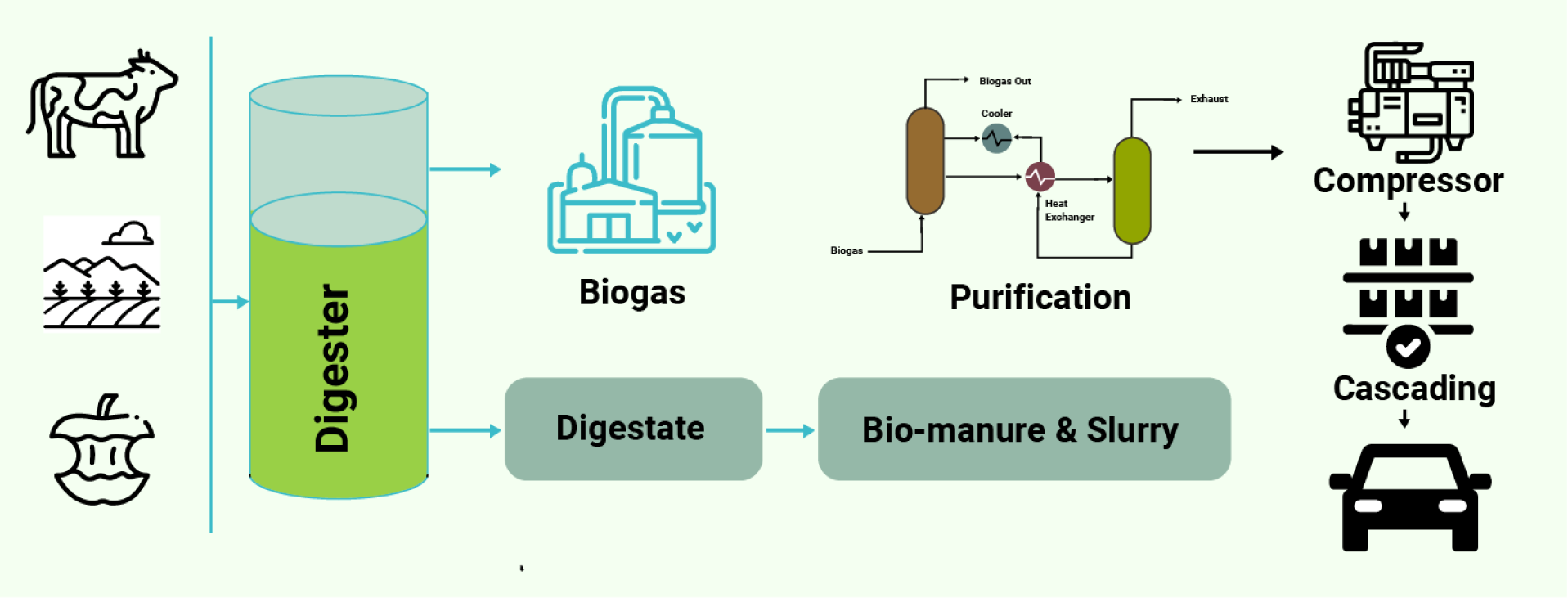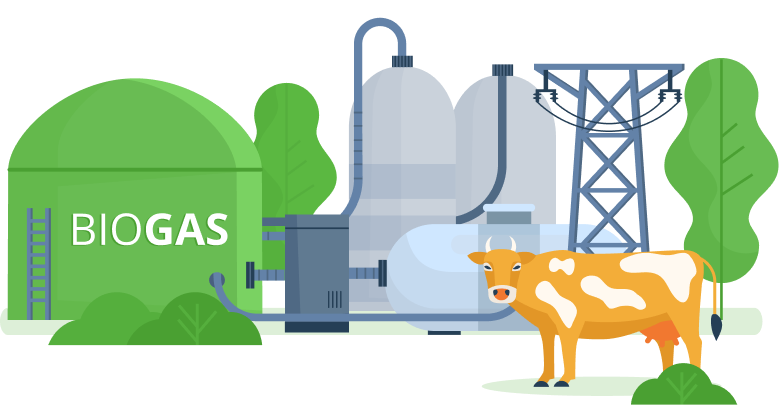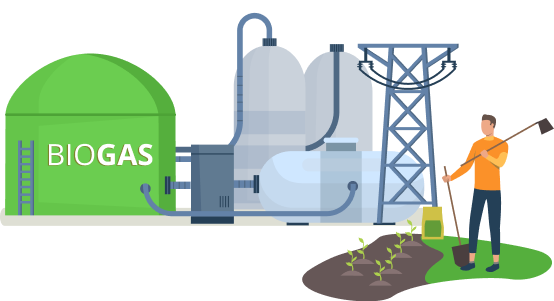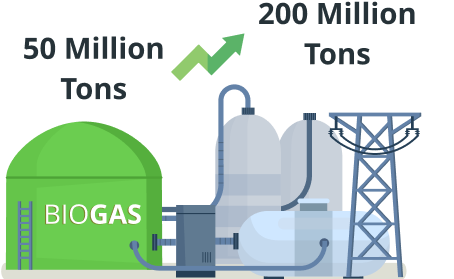Biogas is a renewable fuel produced by the breakdown of organic matter such as agricultural waste,
food scraps and animal waste. Biogas typically contains methane, carbon dioxide and hydrogen sulphide.
To produce compressed biogas, the carbn dioxide and hydrogen sulphide are removed from biogas,
which will then contain more than 90% methane and can be compressed to be used as vehicle fuel.
The anaerobic (without oxygen) process of decomposition of biogenic matter has been happening since
evolution of life and continues to happen in a natural way. The industrial conversion of biogenic
waste into energy in CBG plants is simply accelerating the ability of nature to recycle useful resources.








